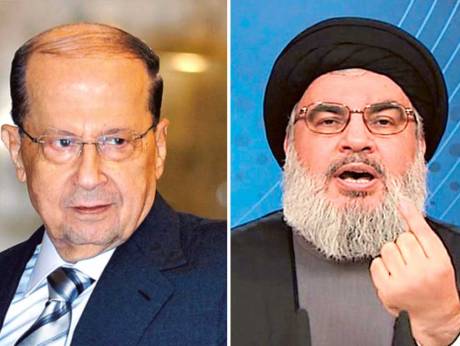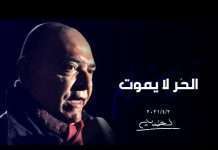Aoun and Nasrallah to hold first meeting in two years
Gulf News/Joseph A. Kechichian/September 8, 2016
Beirut: Although Hezbollah announced that it would not “abandon” its Free Patriotic Movement (FPM) ally, Michel Aoun, the latter was expected to meet with Secretary-General Hassan Nasrallah to iron out differences. Such a meeting, the first in over two years, would presumably address the ongoing rift among March 8 partners whose differences surfaced on Monday around the national dialogue table.
In what was a renewed escalatory step, the FPM’s Jibran Bassil declared his group intended to boycott both the cabinet and national dialogue sessions though he took to the airwaves on Tuesday to clarify his positions, affirming what he believed was a concerted Sunni effort to disrespect the national pact that regulated Christian-Muslim political parity.
Bassil pledged to “use all political and popular means to rectify this abnormal situation”, as he renewed his attacks on Sunnis when he reiterated that he and his group will not “accept a return to the era between 1990 and 2005”, allegedly a period during which Sunnis rose to prominence at the expense of Christians.
In recent weeks, Bassil raised the spectre of the National Pact, which he asserted was no longer respected, though his principle foe was none other than his fellow Christian, the Marada Movement chief and presidential candidate Sulaiman Franjieh, who was nominated in December 2015 by Sa’ad Hariri.
On Monday, Bassil and Franjieh exchanged choice words in public, with Bassil defending himself of “insults … hurled at us”.
According to local media sources, when Bassil raised the issue of respecting the National Pact in the closed session, or anticipate a suspension of the sessions, Speaker Nabih Berri retorted with an acerbic: “It is not you who will score a point against me by suspending dialogue, I will suspend it”. Berri added: “No one is keener than me [to see dialogue succeed] and we are also suffering,” as he called on the FPM’s ministers to return to cabinet sessions “in order to prevent governmental vacuum amid the absence of the Christian component.”
The Druze Progressive Socialist Party representative Ghazi Aridi—who sat in lieu of Walid Jumblat whisked out of the country several days ago on account of recent death threats against him—lamented the shouting match that ensued between several participants. “The dialogue session ended with a suspension of dialogue, which is an outcome that we do not want and do not accept,” Aridi told reporters after the session.
The FPM’s latest boycott of the cabinet is linked to the thorny issue of military appointments, with Bassil maintaining that the country could well be plunged into a “political system crisis” if the other parties do not heed demands regarding Muslim-Christian “partnership”. He insisted that the FPM and the Lebanese Forces represented 94 percent of Christians, which granted them the kind of legitimacy others ought to respect, whereas Franjieh insisted that while he “acknowledged the FPM’s weight … we represent a lot more than six percent.” “I don’t know how the FPM’s ‘calculator’ works”, he added, declaring: “We do not need further obstruction in state institutions”. In what was a direct challenge to the FPM, Franjieh noted that he prefers a new extension for the Commander of the Army, General Jean Qahwaji, over vacuum.
It was unclear whether the Aoun-Nasrallah meeting intended to resolve lingering differences over a slew of concerns, perhaps even settle the fate of who might succeed Michel Sulaiman, whose term ended in May 2014. Hezbollah and its March 8 allies had the necessary votes in parliament to elect Aoun but insisted that no quorum would be secured unless there was unanimity on his candidacy, which belied what is left of democratic freedoms in the country.
For his part, Future Movement leader Sa’ad Hariri stood by his nominee, Sulaiman Franjieh, who is opposed by the FPM-LF coalition as well as Hezbollah. In what was a truly Machiavellian move, Hariri’s nomination prompted LF leader Samir Geagea to endorse Aoun, his long-time Christian rival, thus literally eliminating both from contention on account of insurmountable political differences.
The 82-years-old Aoun believes that the presidency is rightfully his because of the size of his parliamentary bloc, though it was difficult to foresee how a suspension of the national dialogue would guarantee the unanimity he is seeking or how a myriad disputes among warring factions can be resolved.

















